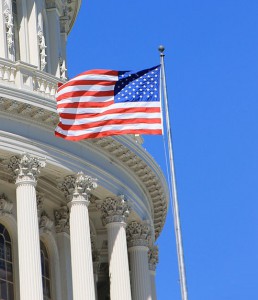Why American Exceptionalism Is Wrong

AHA Legislative Associate Matthew Bulger takes offense at President Obama’s claim that the United States is exceptional and explains why it’s dangerous to think so.
A few weeks ago the leader of Russia, Vladimir Putin, penned an op-ed in the New York Times that was meant to allow him to speak directly to the American public about the crisis in Syria. While the op-ed was a fairly transparent political ploy on behalf of Putin, one section stood out because of its sincerity and significance.
Referring to a recent speech by President Obama, Putin writes, “I would rather disagree with a case he made on American exceptionalism, stating that the United States’ policy is ‘what makes America different. It’s what makes us exceptional.’ It is extremely dangerous to encourage people to see themselves as exceptional, whatever the motivation…We are all different, but when we ask for the Lord’s blessings, we must not forget that God created us equal.”
Unnecessary religious language aside, this statement by the Russian president is important to note because America’s insistence on declaring itself exceptional is not only dangerous, it’s also an embarrassing display of exceptional arrogance.
America is a great country with a compassionate and empathetic citizenry, and our traditions of scientific inquiry, economic innovation, and political equality are something to be commended. That being said, we must recognize the folly of promoting ourselves as a “special” or “exceptional” nation, because the danger of doing so is rampant nationalism and international isolation.
When we encourage our fellow Americans to think that they are better than those born in other countries, we feed the flames of nationalism and all the problems that come along with it. Rather than seeing ourselves as a partner in the international community that helps to enforce international law, we begin to see ourselves as the global police force, able to enforce international law unilaterally and even ignore international law if we so choose in our quest to impose our will on the world. As Americans become more and more convinced of the special nature of our country our nationalism will grow, causing us to respond more often with force and violence to countries that threaten or insult us or even refuse to submit to our “special” authority. The result of this rise in nationalism is an increasing isolation from the international community as other countries become frustrated with our imposing actions and increasingly wary of interacting with us for fearing of saying the wrong thing and causing a military invasion.
Think back to your grade school days and you can probably remember the big imposing kid that would take what he wanted from other children through force. Do we really want to become this bully on the global stage? If we continue to think of ourselves as special and above the rules, there is a large chance we may begin to resemble that schoolyard tyrant. With our arrogant claims of exceptionalism, we condemn ourselves to a future of international ridicule and scorn, and we make enemies of those countries that might have been our friends if we would have approached them with humility or respect.
Rather than bragging about how great we are, Americans should instead devote our time to proving our worth to the world through quiet assistance of those in need and support for the international institutions of which we are members. True strength is not shown by flexing our proverbial muscles for the rest of the world to admire and fear, but in doing all that we can under the rules that we all agreed to abide by for those who ask for our help.
